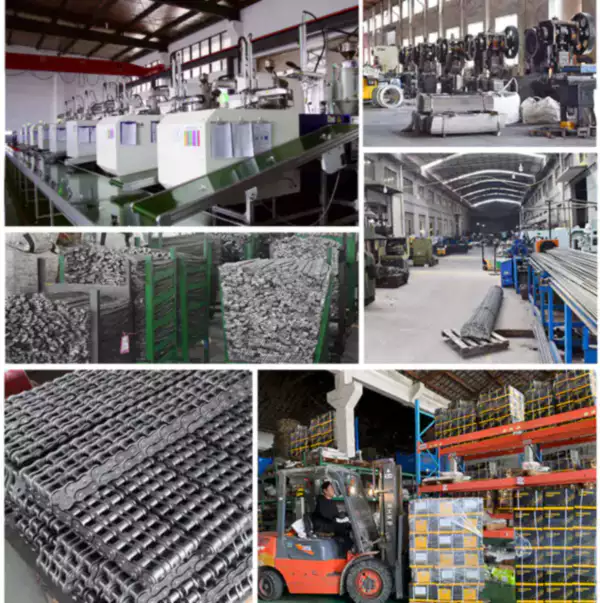Introduction
Gripper chains play an essential role in the food processing industry by conveying products through various stages of production. However, regulatory compliance is a crucial aspect of the industry, and this includes the use of gripper chains. Failure to comply with regulations can lead to significant fines and even closure of a food processing facility. In this article, we will explore the regulatory compliance requirements for gripper chains in food processing and the importance of adhering to these regulations.

What are Gripper Chains?
Gripper chains are conveyor chains designed to convey products on an assembly line using gripper brackets. The gripper brackets hold the products securely as they move through the production line. These chains are used in various industries, including the food processing industry.
Regulatory Compliance Requirements for Gripper Chains in Food Processing
In the food processing industry, regulatory compliance is crucial to ensure the safety and hygiene of the products. The following are the regulatory compliance requirements for gripper chains in food processing:
- Materials: Gripper chains used in the food processing industry must be made of materials that are safe for contact with food. The materials must be non-toxic, non-reactive, and resistant to corrosion.
- Cleanliness: Gripper chains must be cleaned and sanitized regularly to prevent contamination of the products. The conveyor system must be designed to allow for easy cleaning and maintenance.
- Design: The design of the conveyor system must be such that it prevents the accumulation of food debris and other contaminants. The system must also be designed to prevent the growth of bacteria and other microorganisms.
- Documentation: The food processing facility must maintain documentation of the cleaning, maintenance, and inspection of the conveyor system. This documentation must be readily available for inspection by regulatory authorities.

Importance of Adhering to Regulatory Compliance Requirements
Adhering to regulatory compliance requirements is crucial for the food processing industry. Failure to comply can lead to significant fines and even closure of the facility. In addition, non-compliance can lead to contamination of the products, resulting in a risk to public health, which can damage the reputation of the food processing company.
Gripper Chains Purchasing Guide
| Product | Features | Advantages |
|---|---|---|
| Gripper Chain | Heat-treated and high-quality steel for strength and durability, corrosion-resistant, and suitable for use in the food processing industry | Safe for contact with food, easy to clean and maintain, and compliant with regulatory requirements. |
Sprockets for Gripper Chains
Sprockets are an integral part of the conveyor system and work together with gripper chains to move products through the production line. It is essential to use sprockets that are compatible with gripper chains to ensure smooth operation. Our company offers a wide range of sprockets that are compatible with gripper chains, and we can help you choose the right sprocket for your conveyor system.

Our Advantages
- We are a gripper chain manufacturer, which means that we have complete control over the quality of our products.
- Our gripper chains are made of high-quality, food-grade materials that are safe for use in the food processing industry.
- Our products are customizable to meet the specific needs of our customers.
- We offer competitive pricing without compromising on quality.
- We provide excellent customer service and support throughout the entire purchasing process.

Q&A
Q: What is the maximum temperature that gripper chains can withstand?
A: The maximum temperature that gripper chains can withstand depends on various factors, such as the type of material used and the environment in which they are used. It is essential to choose gripper chains that are suitable for the specific conditions in which they will be used.
Q: How often should gripper chains be cleaned and sanitized?
A: Gripper chains should be cleaned and sanitized regularly, and the frequency depends on the specific requirements of the food processing facility. It is essential to follow the manufacturer's instructions for cleaning and maintenance to ensure optimal performance and compliance with regulatory requirements.
Q: Can gripper chains be used in a wet environment?
A: Gripper chains can be used in a wet environment, but it is essential to choose chains that are resistant to corrosion and suitable for use in wet environments. It is also crucial to ensure that the conveyor system is designed to allow for easy cleaning and maintenance to prevent the growth of bacteria and other microorganisms.
Edited by Zqq.
